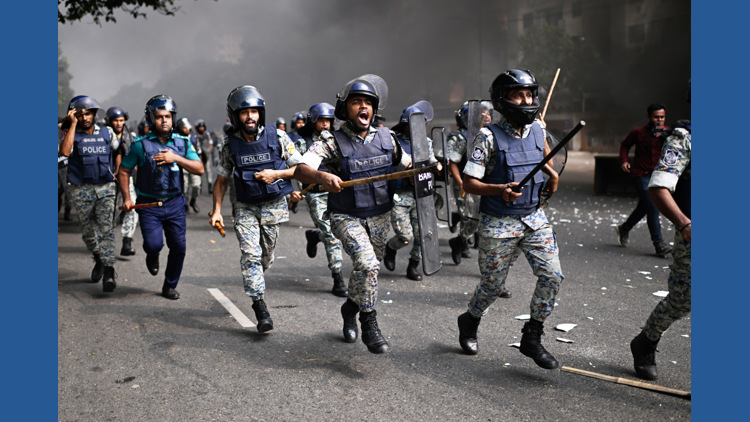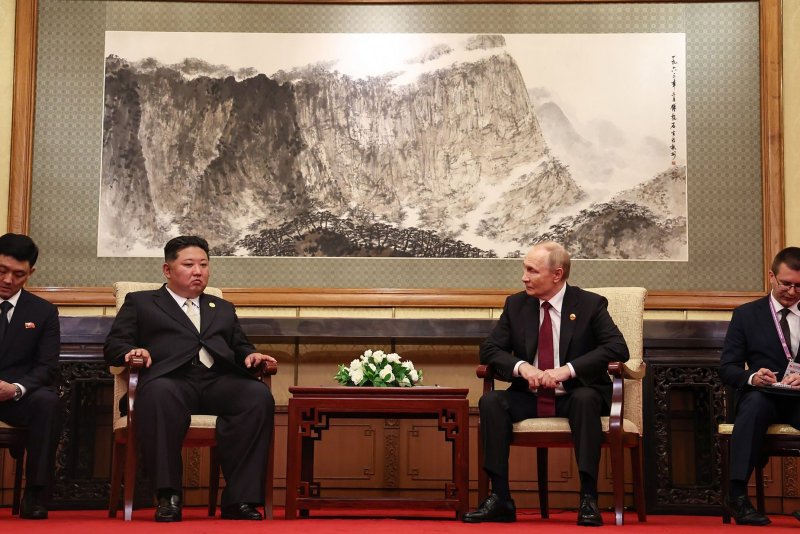UPDATE: Sajeeb Wazed Joy, the son of ousted Prime Minister Sheikh Hasina, urgently calls for the interim government of Bangladesh to lift a ban on his mother’s party, asserting that any election excluding the Awami League would be a “sham.” In a powerful interview with The Associated Press from Washington D.C., Joy emphasized that without an inclusive electoral process, the nation would remain politically unstable.
The political climate in Bangladesh is tense as the country prepares for elections scheduled for February 2026. Joy stated, “This ban has to be lifted, the elections have to be inclusive and free and fair.” He warned that the current interim government, led by Nobel Peace Prize laureate Muhammad Yunus, is engaging in “political manipulation disguised as justice” to prevent Hasina and her political allies from participating.
Since Hasina’s ouster in a student-led uprising last year, which ended her 15-year rule and forced her into exile in India, the political landscape has sharply deteriorated. Three days after her removal, Yunus assumed leadership and imposed a ban on the Awami League, resulting in the arrest of senior party figures and the exodus of many others. Joy noted that his family, facing serious charges ranging from corruption to crimes against humanity, has been unjustly targeted.
In a joint letter, six human rights organizations, including Human Rights Watch, condemned the “broad ban” on Awami League activities, highlighting its detrimental effects on freedom of association and expression. Joy emphasized that without sufficient time for election preparation, any results would lack legitimacy. “We are not allowed to conduct any election preparation. So even if the ban is lifted at the last minute, the elections will be a sham,” he stated, reinforcing the urgent need for a fair electoral environment.
Amidst this turmoil, Bangladesh’s political scene is more fragmented than ever, with the Bangladesh Nationalist Party, led by Hasina’s main rival Khaleda Zia, poised to contend in the upcoming elections. The Jatiya Party also faces significant restrictions, with its headquarters attacked and its activities suppressed. Meanwhile, the Islamist party Jamaat-e-Islami is attempting to reclaim its influence after years of suppression, complicating the political dynamics even further.
Joy warned that the instability could benefit extremist groups, accusing Yunus of planning a “rigged election” that would empower Islamists. He addressed the violence during the uprising, acknowledging missteps by the Hasina government while disputing claims of widespread fatalities, citing a health adviser’s estimate of around 800 deaths.
The interim government’s track record has come under scrutiny, with Joy claiming that thousands of Awami League supporters remain jailed and denied bail. He reported that around 500 party activists have been killed since the uprising, many at the hands of mobs, and highlighted the targeted violence against religious minorities, particularly Hindus.
Joy’s allegations point to a troubling human rights situation under Yunus’s administration, which has been accused of brutal crackdowns on dissent. With the interim government yet to respond to these claims, the political future of Bangladesh hangs in the balance.
As the countdown to the elections begins, the international community watches closely for developments. The need for a transparent electoral process has never been more critical, as Joy and others argue that true democracy in Bangladesh hinges on inclusivity and fairness.
In this unfolding crisis, the world awaits the interim government’s next steps. Will they heed the call for an inclusive election, or will Bangladesh’s political instability continue to deepen?






